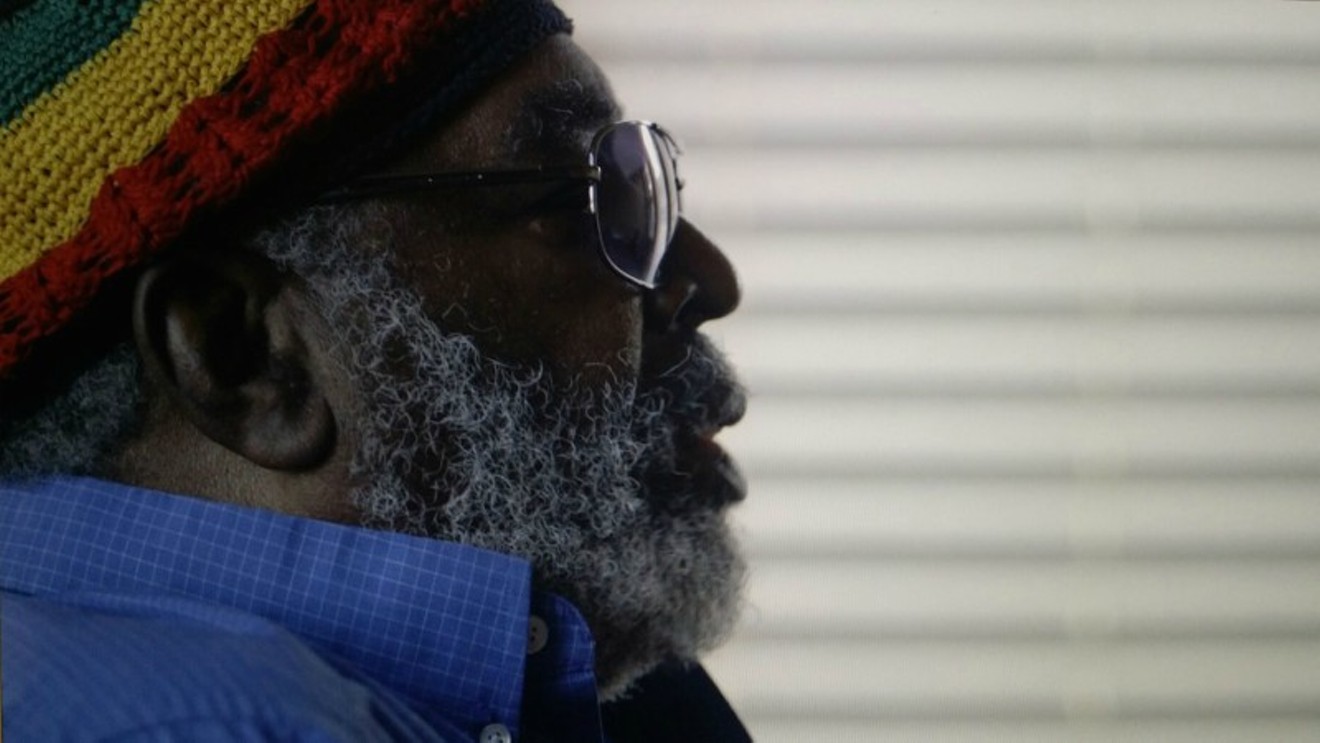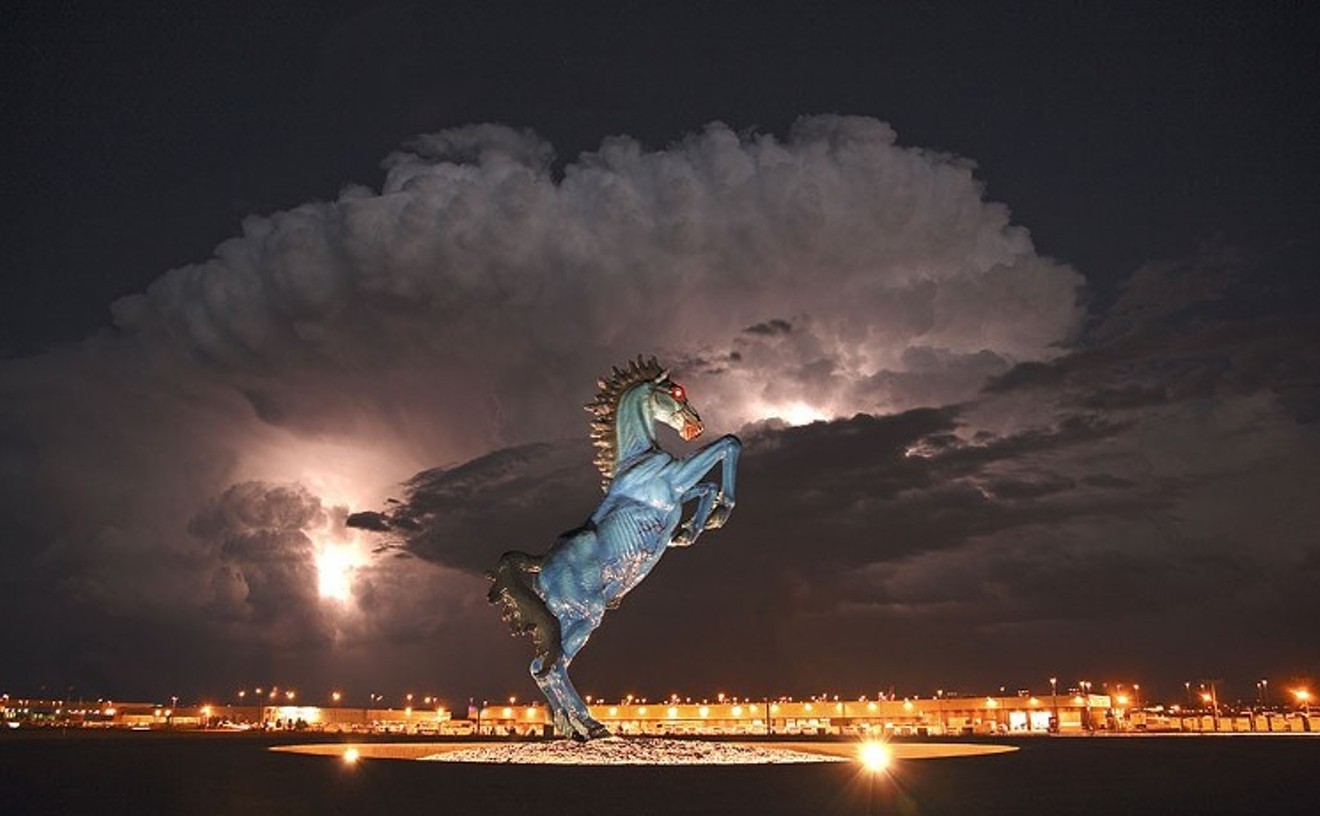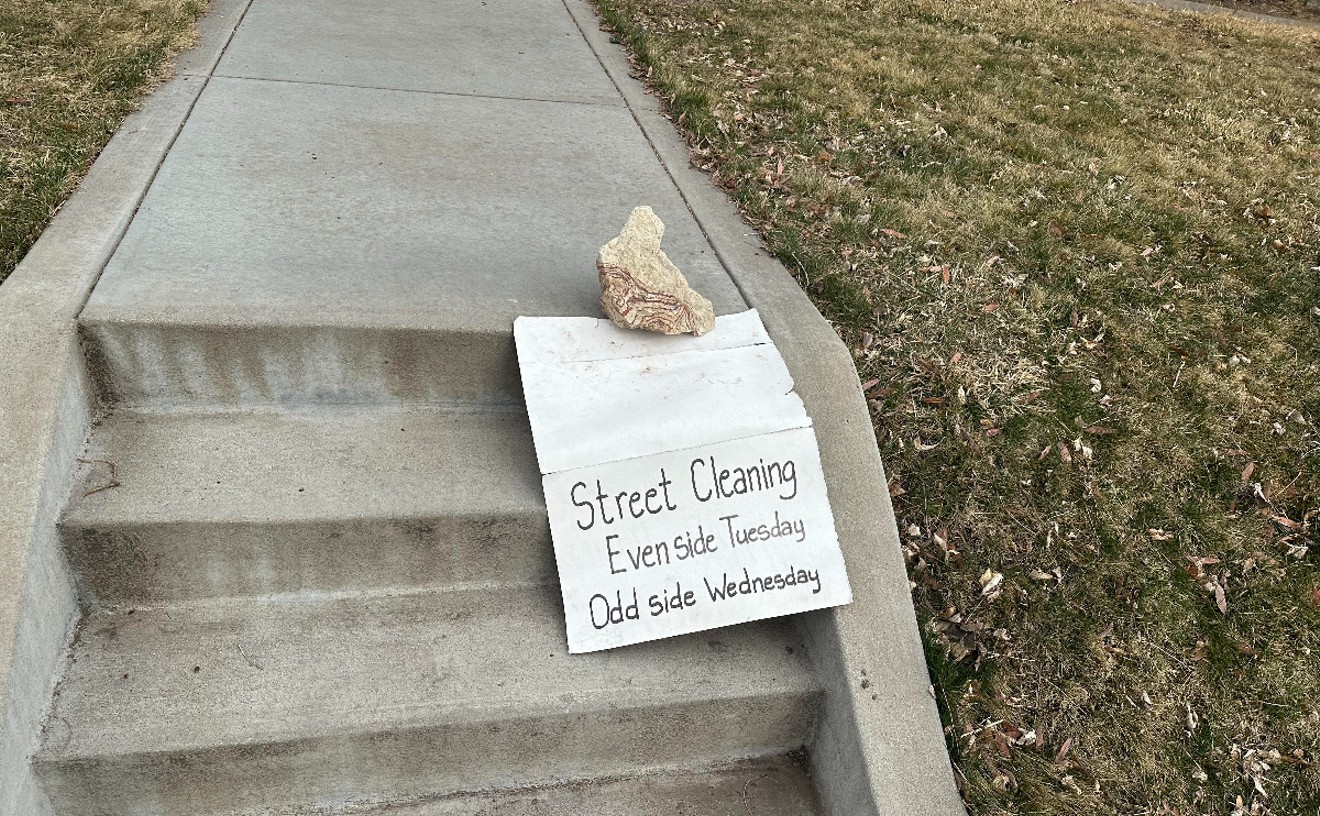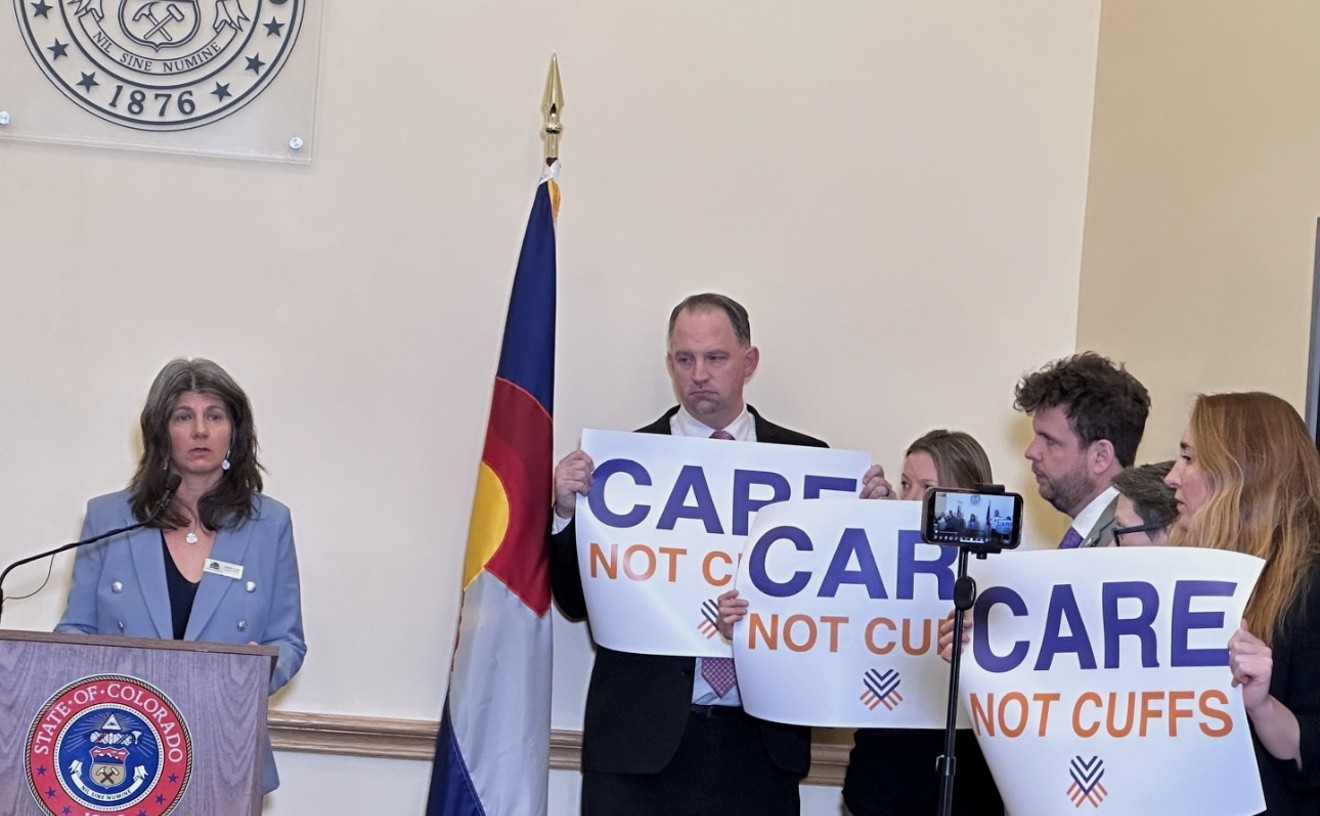Nonetheless, his son, community organizer Hasira Ashemu, sees a direct link between Watson's efforts and today's political scene in Denver, as exemplified by the recent Denver City Council victory of challenger Candi CdeBaca over incumbent Albus Brooks, a longtime ally of Mayor Michael Hancock, in District 9, where his father made an unsuccessful bid to unseat the late Elvin Caldwell in 1975.
"Albus Brooks represents the kind of councilperson my father ran against," Ashemu says of Caldwell, a namesake of Denver's Blair-Caldwell African American Research Library. "What he wasn't able to accomplish, my very good friend and sister Candi and Lisa Calderón [a former mayoral candidate turned CdeBaca's chief of staff] were able to do because of the grassroots movement that overthrew Albus Brooks and the Hancock machine. So the district has come full circle."
Connections like this one aren't widely known, in part because Watson spent the past several decades outside the public eye and had been in declining health during recent years. Nonetheless, author Julian Rubinstein, who's currently working on The Holly, a book and accompanying documentary film expected to tell a multi-generational story against the backdrop of northeast Denver, is among those distressed that more people aren't cognizant of Watson's influence. In his words, "It's surprising, given how large his profile is in his community and among the Black Panthers, how little-known his legacy is in greater Denver."
Rubinstein conducted the final interview with Watson, who had a deep distrust of the mainstream press. Indeed, one of the last major articles about him was "Fade to Black," written by journalist Eric Dexheimer and published by Westword way back in September 1995. Among other things, the story — click to read part one and part two — details the ideological awakening of Watson, who was born in San Francisco circa 1940 but moved to Denver with his family when he was ten. He enrolled at Metropolitan State College in the early 1960s and took part in campus groups such as the Congress of Racial Equality and the National Association for the Advancement of Colored People. But the 1965 Watts riots, which ignited during a period when he was living in the Los Angeles area, changed his life and his outlook.
He subsequently joined the Oakland-based Black Panther Party for Self-Defense, the organization's full name, and with the personal encouragement of leaders Huey Newton and Bobby Seale, he started a chapter in Denver.

A screen capture from Trial: The City and County of Denver vs. Lauren R. Watson.
Courtesy of Julian Rubinstein
"I'll never forget them walking into the Colorado State Capitol carrying rifles," Roberts says. "The Constitution says you can bear arms, and because the rifles weren't concealed, they couldn't say anything" until laws were changed, largely because of the Panthers. "That was a major thing for us as kids — seeing grown men walking around with these .50-caliber bullets around their necks painted green, black and red. That was intriguing to us, so we got some black khakis, some turtlenecks and some .50 caliber bullets to wear around our necks." When Roberts and his pals showed up at their school in these outfits, they were promptly sent home — supposedly because the weather was too hot for such garb, although Roberts knew "it was a militant thing. They weren't going to let us kids dress up as Black Panthers."
But there was a lot more to the Panthers' message than shows of force. The group sponsored free breakfasts that became the precursor of programs in public schools — and along with the food, Roberts, a regular attendee, recalls plenty of practical, and empowering, instructions. Watson "talked to us about being healthy, like how to do checkups and get hepatitis shots, and how to take care of our families. And he taught us leadership skills: how to live right and not get caught up in the gang life, in the hustle. Even though we were young, he taught us to be real men. He was an ambassador to our community."
Not everyone liked this message — particularly law enforcement. "The breakfast program lasted a long while, until the FBI came in and shut it down," Roberts recalls. "We were on our way to get something to eat, and we saw the FBI and the deputy sheriffs taking everybody out in handcuffs."
The harassment of Watson was captured by a New York public television crew in Trial: The City and County of Denver vs. Lauren R. Watson, a documentary about his 1970 trial for resisting arrest. The multi-episode offering is now almost impossible to find, even though it was the first of its kind, capturing actual court proceedings as they happened. In the end, Watson was acquitted.
Former Denver mayor Wellington Webb, who attended Manual High School with Watson, was part of another major protest put together by the Panthers: a sit-in at the very office he would one day occupy. "I often joked later in life that if I'd known I would someday be mayor, I would not have participated," he says of the occupation, which protested community redlining and numerous other subjects.
Webb eventually became a much more traditional political figure than Watson, and he says frankly, "We didn't agree on most issues —and when he decided to run against Elvin Caldwell, I told him I didn't think that was a good idea." But Watson still supported Webb and future Denver First Lady Wilma Webb when they sought seats in the state legislature.
"He scared some people," Webb concedes, "because he was a towering figure, both intellectually as well as physically. But he pushed important issues to the forefront, and he was also the director of the Model City program for a period of time."
The latter project operated under the supervision of George Romney, Utah senator and erstwhile presidential candidate Mitt Romney's father, who then headed the Department of Housing and Urban Development. But Watson got bounced from the gig after FBI boss J. Edgar Hoover learned about his background. A letter from one of Romney's underlings reads in part, "All of our information confirms the reports of Mr. Watson's militant and anarchistic activities, and we would view his continuation in the Denver program as an extremely dangerous and intolerable situation."

A 1970 Denver Post story about the Model City program, including a photo of Lauren Watson being "restrained."
Courtesy of Julian Rubinstein
After Watson's loss to Caldwell in 1975, he became a less visible figure in day-to-day Denver events. But Ashemu contends that "it wasn't so much that he stepped back from the movement than that the movement itself took a step back. A lot of people came forward in the movement because it was the thing to do. They were wearing Afros and black chains and were all about 'Fight the power' and 'Stick it to the man.' That's the case with every movement: You have those who are there for the show and those who are there for the go. And then you had the co-opting of the progressive movement by the folks who were just interested in maintaining the status quo. Black leather jackets and 'power to the people' were popular in 1969 or 1971, but by 1978 and 1979, you were seeing the beginnings of the Reagan era, when people were trying to assimilate in a great fashion — and I do mean fashion. We moved from having Afros to artificial Jheri curls."
Still, Watson remained a true believer. "One day, I came home from fourth grade, and we'd been given a task by the teacher to come up with who our favorite president was," Ashemu recalls. "I asked my dad which president was the best president for us, and in typical Lauren Watson fashion, he said they were all full of shit. I was like, 'I get it, Dad.' I kind of knew that answer was coming. But I really needed to pass the class so I wouldn't stick out among my peers as being anti-American or anti-status quo. So I asked him again, letting him know this was for an assignment, and asked if he was going to choose the best of the worst, who would it be? And he refused to capitulate. He said they all maintained their position against the black, the brown and the poor white people in this country, and I was really frustrated. But that story shows that in his political positions, there was no compromise. And that lesson serves me to this day."
At the same time, Watson was a bridge builder. Ashemu points out that he worked closely with the late Chicano activist Corky Gonzales, leading a poor people's march side by side during a period when there was tension between the separate communities. "He felt it was important that we not be divided along artificial racial lines," he says.
In his later years, Watson became more open to spirituality with the guidance of Pastor Roberts. The two of them would go together to events such as the Black Arts Festival, and when they did, "people would come up and shake his hands and take pictures with him and thank God that he was such a legend in the city," Roberts says.
While Watson is gone, his legacy lives on in Ashemu, who calls himself an "education and human rights community organizer" rather than an activist, because "activists come and go, but organizers are the ones that plant the seeds that will bloom and manifest themselves twenty, thirty, forty, fifty, sixty years later. Just like Lauren Watson."
Services for Watson are pending.












